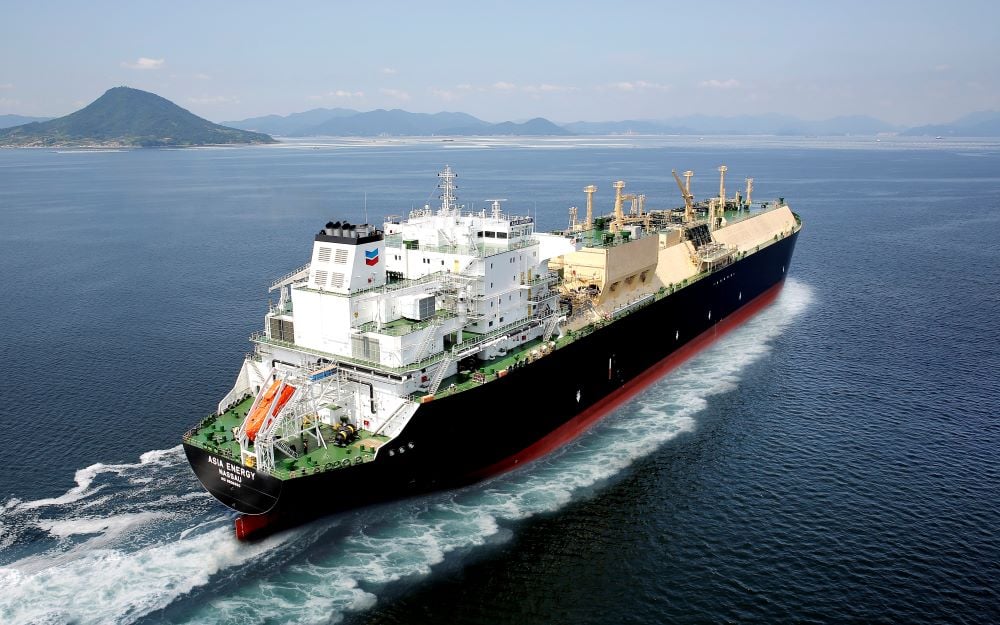Chevron Shipping Company, a subsidiary of energy major Chevron, has agreed with Sembcorp Marine Repairs & Upgrades Pte. Ltd, a wholly-owned subsidiary of Sembcorp Marine, to reduce the carbon intensity of its LNG fleet operations.
Under the agreement, Sembcorp Marine will support Chevron in installing new technologies aboard its vessels in line with the company’s energy transition goals. The changes are also said to be in line with decarbonization targets set by the International Maritime Organisation (IMO).
According to Chevron, it aims to lower the carbon footprint of LNG transportation by installing new technologies such as a reliquefication system, hull air lubrication, and a new gas compressor. Together, these changes are expected to reduce cargo boil-off, lower fuel consumption, and increase the volumes of cargo delivered.
For its part of the work, the Singapore-based shipbuilder will provide Chevron with engineering, procurement, installation, and commissioning (EPIC) services and expects to complete the work by mid-2025.
Wong Weng Sun, Sembcorp Marine President and CEO, said: “Sembcorp Marine is committed to advancing environmental sustainability through the development of industry-leading solutions. Working with Chevron on its LNG fleet upgrades is an immediate way to accelerate the lowering of the carbon footprint in the maritime industry, to achieve the IMO’s target to reduce emissions from international shipping by at least half by 2050, compared to the levels in 2008.”
“We are excited to work with Sembcorp Marine to help us advance our lower carbon goals“, added Mark Ross, President of Chevron Shipping Company. “We believe LNG will be a key component of the global energy transition for years to come and Chevron is focused on continuing its disciplined capital investment in our LNG fleet.”
When it comes to Chevron’s recent LNG activities, it is worth mentioning that the company last year delivered its first shipment of offset-paired LNG cargo from the Gorgon project off Western Australia.
The energy company said at the time that greenhouse gas (GHG) emissions for the cargo will be fully offset via the retirement of high-quality nature-based and energy-efficiency offsets in Cambodia, Indonesia, and Nepal.

